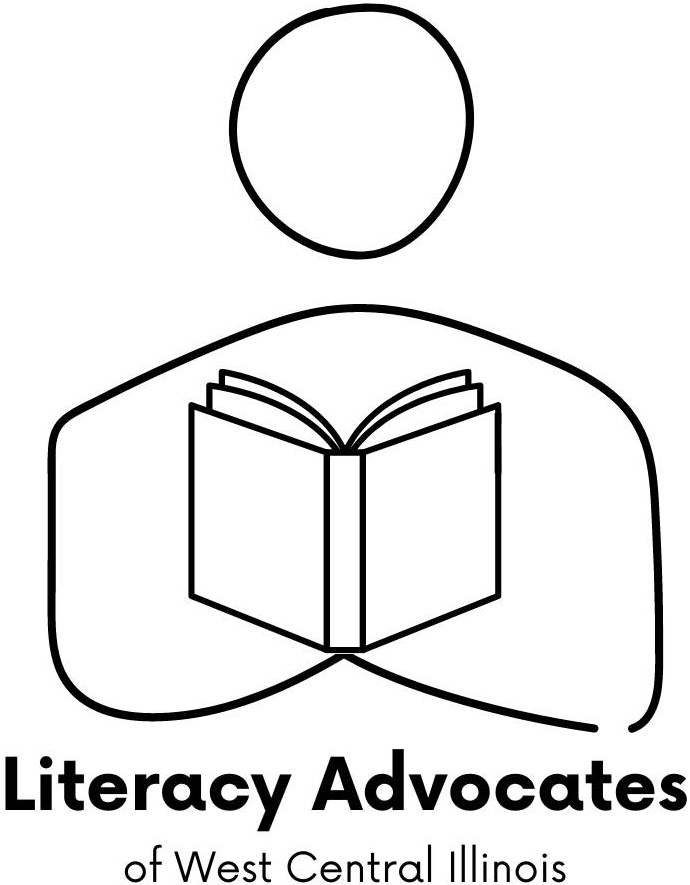Local literacy group created to help get resources to reading challenged students

QUINCY — Julie Schuetz’s son received a diagnosis of dyslexia just before the COVID-19 pandemic. She wanted to help him, but she didn’t have access to resources about his disability.
“All the schools had shut down,” she said. “That’s when I found out there wasn’t a whole lot of resources for kids.”
Taking a sabbatical from practicing law, Schuetz took matters into her own hands and trained herself so she could teach her son.
“Then I figured out that this training that I’m doing could actually benefit all of our kids,” she said.
Schuetz started the Literacy Advocates of West Central Illinois a few months ago. She hopes to initiate a community conversation on how to help reading challenged kids.
“There isn’t a robust exchange between educational researchers and our educators,” Schuetz said. “We have people out there doing research and understanding effective practices, but that’s not always getting translated to our local administration, teachers and so on.
“We have some amazing, passionate, dedicated teachers in the area, but they don’t necessarily have the time or resources to stay up to date on all the latest practices. We are hoping our group could help facilitate the training.”
U.S. News and World Report says one in five people worldwide has dyslexia, which involves difficulty reading due to problems identifying speech sounds and learning how they relate to letters and words.
The solutions Schuetz discovered in her research for her son revolved around structured literacy instruction, which focuses on phonics, syntax, word recognition and decoding, according to the International Dyslexia Association
It’s a methodology Schuetz says schools have gotten away from.
“As teachers start seeing that this is something that is effective, it’s going to be something that they’re going to want to learn more about,” Schuetz said.
She said most schools nationwide are using a balanced literacy approach that assumes reading is learned through instruction in multiple environments, differing on the class and teacher. Balanced literacy includes reading aloud, shared reading, guided reading and word study.
Schuetz hopes her fledging group can help guide teachers and institutions toward the funding necessary to provide the instruction to help kids suffering from reading challenges. She knows it will take an effort from many people, even those outside the school districts.
“While we can try to get teachers trained, we’re also going to need to look at it from a community perspective,” Schuetz said. “How can we create a more robust tutoring system, especially for kids whose parents can’t afford it? We want to try to work with the schools and the surrounding communities. This is a big part of what our group wants to do. That’s why we’re hoping to educate people.”
Schuetz says low literacy rates often are connected to high unemployment, incarceration and shorter lifespans.
“It’s really important that our whole community understands this issue and try to be part of the solution,” she said.
The Illinois State Board of Education reports 38 percent of students were reading at their grade level before the pandemic. That figure since is at 30 percent.
A local success story can be found in the Liberty School District, which reports improved results by implementing a structured literacy program — not just for reading challenged children but children at all levels.
“What we have found, specifically within our district, is (structured literacy) can help all learners,” said Melissa Straley, a reading and learning behavior specialist who implemented the structured literacy strategy in grades K-6 in Liberty. “Years ago, we were using programs that had more of a phonetic sequence and a logical scope. We got away from that over time. Philosophically, we realized ‘balanced literacy’ is not as productive as a ‘structured literacy’ program. We have the data now to show that.”
Liberty’s success took more than a decade of implementation and research, starting with a few reading-challenged students. First-grade students now are achieving 82.8 percent at or above benchmark level. That figure is at 93.6 percent for kindergarten students.
Schuetz hopes the group will increase discussion on how to provide resources to students.
“I had a lot of teachers come to me and say, ‘I just never really felt confident in the teaching practices that I was doing,’” Schuetz said. “(I hope it’s) exciting for a lot of teachers to see there are these other resources and methodologies that can maybe help them reach even more of their kids.”
Straley believes students are missing out.
“Students are falling through the cracks,” she said. “And, well, it’s just unacceptable.”
Literacy Advocates of West Central Illinois has a Facebook page and an Instagram account, and it hopes to have a website soon. For more information, contact them at literacyadvocatesofwcil@gmail.com.
Miss Clipping Out Stories to Save for Later?
Click the Purchase Story button below to order a print of this story. We will print it for you on matte photo paper to keep forever.

